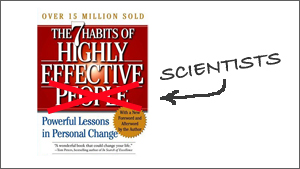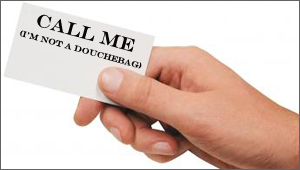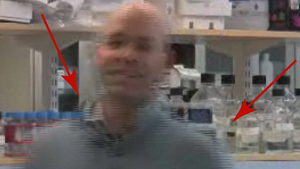 Nobody starts graduate school thinking, “I’d like to be average. I’ll be happy just blending into the background and having to remind my PI of my name on my graduation day.” We all want to do our best, become a great graduate student and ultimately blossom into great scientists. Yet, there’s often one little wrinkle in executing the plan – what exactly is a great student and how do we become one?
Nobody starts graduate school thinking, “I’d like to be average. I’ll be happy just blending into the background and having to remind my PI of my name on my graduation day.” We all want to do our best, become a great graduate student and ultimately blossom into great scientists. Yet, there’s often one little wrinkle in executing the plan – what exactly is a great student and how do we become one?
Flyceum: Your Science. Your Career.
We’re following in the tradition of open discussions among scientists that has resulted in important advances in both science and society.
What Makes a Great Student in the Lab?
by
The Graduate School Survival Guide
by
 (In honor of the beginning of the academic year, we’re revisiting our Graduate School Survival Guide Series that was previously posted.)
(In honor of the beginning of the academic year, we’re revisiting our Graduate School Survival Guide Series that was previously posted.)
All over the country this week a new crop of eager young scientists begin their journey of discovery. Graduate school is a great time of learning and exploration, but it can also be stressful – especially the beginning. Perhaps the hardest part about the transition to grad school is the uncertainty involved. When will I graduate? Who should I work for? What’s expected of me? Can I drink the lab ethanol?
Don’t Mislabel Me (Just My Bottles)
by
Is it wrong to intentionally mislabel buffer bottles to keep people from stealing them?
– WV, grad student
The Seven Habits of a Highly Successful Scientist
by
 It’s been over twenty years since Stephen Covey first published his best-selling self-help book The Seven Habits of Highly Effective People. That means it’s also been over twenty years that we’ve been pushing “reading it” to the bottom of our to-do list (“Let’s see, I could either set up another experiment or read some cheesy self-help book…”). But 15 million copies don’t sell themselves, so we figured it was time to take a look under the cover. In the interest of your to-do list (and wallet), we’ve adapted Covey’s principles to create The Seven Habits of a Highly Successful Scientist…
It’s been over twenty years since Stephen Covey first published his best-selling self-help book The Seven Habits of Highly Effective People. That means it’s also been over twenty years that we’ve been pushing “reading it” to the bottom of our to-do list (“Let’s see, I could either set up another experiment or read some cheesy self-help book…”). But 15 million copies don’t sell themselves, so we figured it was time to take a look under the cover. In the interest of your to-do list (and wallet), we’ve adapted Covey’s principles to create The Seven Habits of a Highly Successful Scientist…
Dear Boss: Time to Trust Me (or Bust Me)
by
My PhD boss does not trust me at all and according to him I am a thief who is selling his lab work to others, but of course I am not doing that. He checks my results five times – keeping watch on me. It’s really bothering me…please help.
– Rohit, grad student
Escape Velocity: Non-Research Oriented Careers
by
 My career path over the years has veered in directions I never would have guessed. As an undergraduate, majoring in chemistry, I thought that engineering sounded completely unappealing because of all the math involved. I also refused to take a single biology class because my mother taught high school biology, and it amused me that my dislike of biology irked her. (That totally counts as rebellion, right?)
My career path over the years has veered in directions I never would have guessed. As an undergraduate, majoring in chemistry, I thought that engineering sounded completely unappealing because of all the math involved. I also refused to take a single biology class because my mother taught high school biology, and it amused me that my dislike of biology irked her. (That totally counts as rebellion, right?)
Did You Want a Career in Academics? Oh, Sorry.
by
 When pursuing research as a profession, it often seems our options distill down to two choices: 1) a career in academics, or 2) a career in anything else. While ‘anything else’ includes a tremendous number of exciting opportunities, it’s not unusual that researchers might feel a bias towards academics – especially early in their careers. After all, the academic environment is where most of us start out and as a result, our professional role models are likely academics.
When pursuing research as a profession, it often seems our options distill down to two choices: 1) a career in academics, or 2) a career in anything else. While ‘anything else’ includes a tremendous number of exciting opportunities, it’s not unusual that researchers might feel a bias towards academics – especially early in their careers. After all, the academic environment is where most of us start out and as a result, our professional role models are likely academics.
Send Email Without the Worry: Training Your Autopilot
by
 Work is filled with moments where our minds drift off on vacation, leaving the body carelessly going through the motions in autopilot mode. Nowhere are the consequences of a poorly-trained autopilot more damaging than in email. Mess up an experiment, you can repeat it. Send an angry email to your boss, you can start browsing the classifieds.
Work is filled with moments where our minds drift off on vacation, leaving the body carelessly going through the motions in autopilot mode. Nowhere are the consequences of a poorly-trained autopilot more damaging than in email. Mess up an experiment, you can repeat it. Send an angry email to your boss, you can start browsing the classifieds.
Having a Business Card Doesn’t Make You a Douchebag
by
 The business card is a staple in most industries, but they are much less prevalent in science, particularly in the academic community. For many of us, the thought of handing out business cards congers up images of slimy douchebags at cheesy networking events. Yet, the reality is far from that fear. The business card is a powerful professional tool that deserves serious consideration among scientists. The douchebag, on the other hand, is a different kind of tool and should be avoided in the interest of career development…
The business card is a staple in most industries, but they are much less prevalent in science, particularly in the academic community. For many of us, the thought of handing out business cards congers up images of slimy douchebags at cheesy networking events. Yet, the reality is far from that fear. The business card is a powerful professional tool that deserves serious consideration among scientists. The douchebag, on the other hand, is a different kind of tool and should be avoided in the interest of career development…
An Essential Video Setting: Deinterlace
by
 The “deinterlace video” setting is one of the easiest ways to improve video quality and it requires nothing more than a click of a button. Understanding how video is recorded and displayed provides a solid foundation for documenting your laboratory techniques as well as for looking cool when talking about high definition tvs…
The “deinterlace video” setting is one of the easiest ways to improve video quality and it requires nothing more than a click of a button. Understanding how video is recorded and displayed provides a solid foundation for documenting your laboratory techniques as well as for looking cool when talking about high definition tvs…



